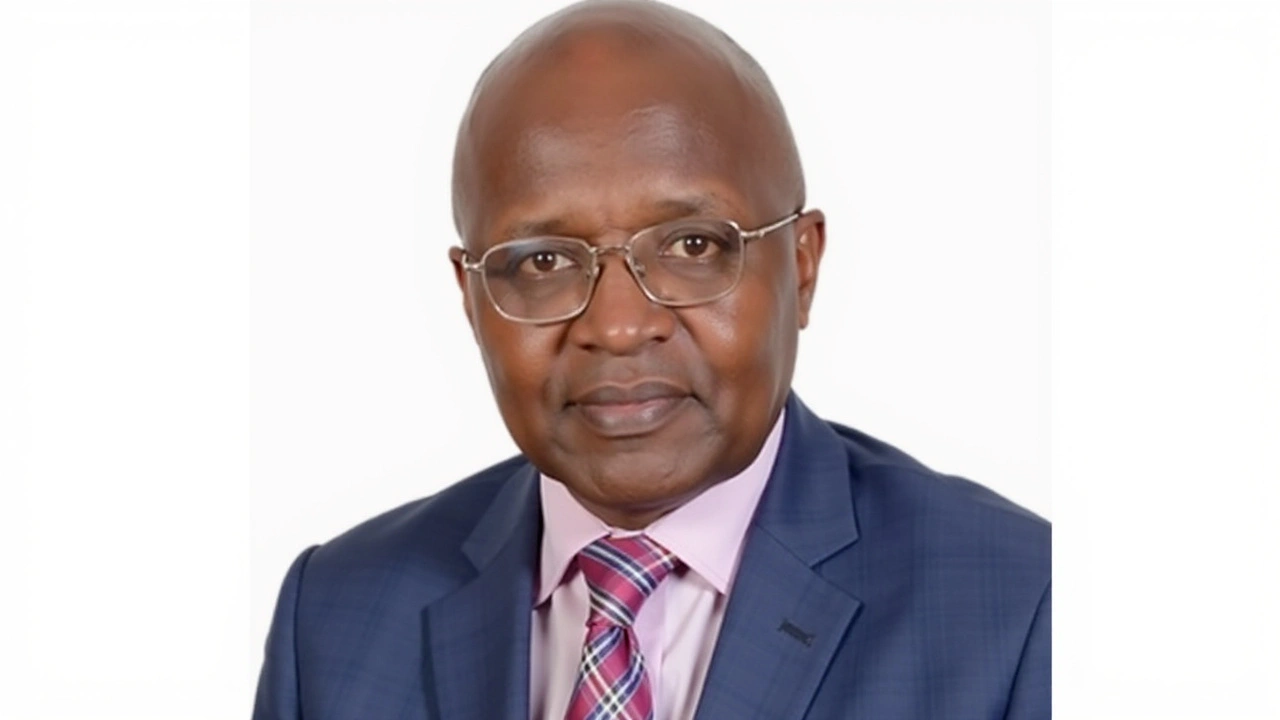The Resignation That Raised Questions: Peter Mbae's Exit from Government Delivery Services
The recent resignation of Peter Mbae as the head of the Government Delivery Services (GDS) has brought to light the intricacies and challenges faced within the public service sector. In a formal resignation letter addressed to the Head of Public Service, Felix Koskei, Mbae cited unresolved issues and continuous challenges as the primary reasons for stepping down from his role, which he held since June 2024. His departure not only signals personal discontent but also reflects deeper structural issues within the government's operational framework.
Unmet Commitments and Persistent Obstacles
Mbae's decision to resign was not made lightly. Throughout his tenure, he was charged with overseeing the implementation of government programs across various ministries, departments, and agencies. Despite his dedication and concentrated efforts, as outlined in his resignation letter dated January 9, 2025, Mbae encountered ongoing obstacles that impeded his ability to fulfill his mandate effectively. These challenges, as per his account, were brought to the attention of the public service leadership but left unaddressed, driving him to the conclusion that his efforts were stymied by systemic inertia.
In the realm of public service, such positions require not only passion and consistency but also robust support systems that facilitate the seamless delivery of services. Mbae, whose career has spanned significant positions including Secretary for Investments Promotion in the Ministry of Investments, Trade, and Industry, expected a certain level of accountability and responsiveness that, as per his statements, were lacking in his recent position.
A Contested Narrative: Conflicting Timelines and Statements
The narrative of Mbae's resignation has been complicated by conflicting accounts from the Government Delivery Unit (GDU). While Mbae stands firm on his resignation via a letter submitted on January 9, 2025, the GDU has relayed a different sequence of events. According to the GDU, Mbae's involvement with the GDS actually concluded on July 11, 2024, following the Cabinet's dissolution. They further emphasized that all due formalities, including the settlement of dues, were completed by July 24, 2024. This stark discrepancy between the two parties has cast a shadow of uncertainty over the exact timeline of events.
Such contradictions are not just administrative hiccups; they point towards a larger concern of transparency and communication within governmental bodies. Mbae, aware of the potential for his resignation to be misconstrued or downplayed, reiterated in his statement that the issues he raised represented broader, systemic challenges that he believed should not be diminished by opposing narratives.
Transition and Future Implications
In the aftermath of Mbae's resignation and the ensuing discussions, the Government Delivery Unit has moved quickly to fill the leadership void. Mr. Lee Kyonze has been appointed as the Acting Head, tasked with ensuring continuity and stability during this transition period. While such appointments aim to maintain momentum within the unit, they also underscore the need for addressing the underlying issues that prompted Mbae's departure in the first place.
In any governmental structure, leadership transitions are pivotal moments that can either pave the way for innovative improvements or risk perpetuating existing inefficiencies. The leadership change within the GDS presents an opportunity for introspection, evaluation, and potentially, reformation of operational processes that might have been overlooked or underestimated under previous oversight.
Challenges and Opportunities for Governmental Reform
The case of Peter Mbae is not an isolated incident but rather a reflection of broader challenges faced by many public service operatives worldwide. The struggle to turn policy into practice, when hampered by bureaucratic hurdles and insufficient engagement from higher authorities, often leaves dedicated professionals like Mbae at a crossroads. His resignation should prompt a critical examination of administrative protocols, resource allocation, and inter-departmental collaboration, all of which are crucial for effective service delivery.
Moreover, the public's trust in government services is intricately linked to the perceived efficacy and transparency of their operations. Building on Mbae's experiences and concerns, there lies an opportunity to reform systems for greater accountability and responsiveness. Ensuring that the voices of those in operational roles are heard and their concerns addressed can significantly enhance both morale and outcomes within public service infrastructure.
Conclusion
Peter Mbae's resignation is more than just a personal career decision—it is a clarion call for systemic examination and reform within public service sectors. As governments strive to meet the evolving needs of their citizens, the challenges highlighted by Mbae must be addressed to foster an environment where public servants can efficiently fulfill their mandates without undue constraints. His story serves as a catalyst for dialogue and action towards better governance and operational success.
